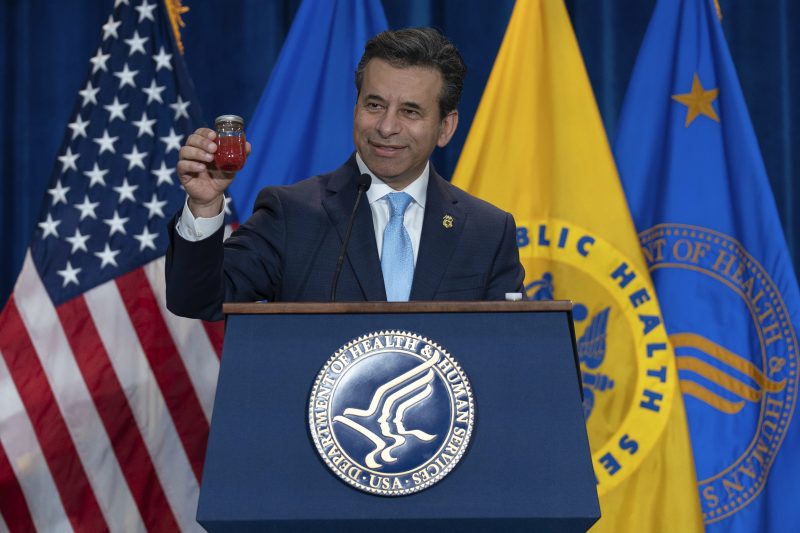The Food and Drug Administration (FDA) is launching an effort to streamline the approval process for cheaper alternative “biosimilar” versions of biologic drugs as a way to curb health costs.
The agency published a draft guidance for industry Wednesday that would potentially make it faster and less costly for companies to develop biologics and bring them to market, leading to increased competition and lower drug costs for patients.
The agency proposed that human studies might not always be necessary to prove that the product is similar enough to an existing FDA-approved biologic.
Instead, the guidance allows developers to rely on analytical testing to demonstrate product differences.
“We don’t have these additional requirements for generics. Moving forward, we’re not going to have them for biosimilars,” FDA Commissioner Marty Makary said during a press conference. “This reform will take the five-to-eight-year time frame to bring a biosimilar to market and cut it in half. It will also save companies about $100 million in their development costs.”
Biosimilars are the equivalent of the “generic version” of FDA-approved biologic drugs. Biological products are engineered with living cells, which makes manufacturing more complex than for chemically derived drugs.
Biologics have a special pathway to FDA approval, and the high manufacturing and development costs make it is harder for generic drug manufacturers to sell cheaper versions. Biosimilars are treated differently from other generic small molecule drugs.
On average, biosimilars cost 50 percent less than their brand-name counterparts, and their entry into the market drives down brand-name prices. Last year, biosimilars saved the U.S. $20 billion in health care costs, the FDA said.
The first biosimilar was approved in 2015, and FDA said it has only approved 76 biologics to date. Only 10 percent of branded biologics that will lose patent protection in the next decade currently have biosimilars in development.
“Biologics treat many chronic diseases, but for too long, a burdensome approval process has kept patients from accessing more affordable biosimilars. This bold action by the FDA accelerates biosimilar development, drives market competition, expands patient options, and advances our mission to Make America Healthy Again,” Health and Human Services Secretary Robert F. Kennedy Jr. said in a statement.
The sponsor of a proposed biosimilar product must, among other things, demonstrate that the proposed product is highly similar to the existing product, and that there are no clinically meaningful differences in terms of safety, purity, and potency.
Companies have been required to prove that by conducting expensive and time-consuming comparative efficacy studies. But FDA in its guidance said those studies “often add little scientific value compared with advanced analytical testing.”
In addition, the agency through a separate initiative said it plans to make it easier for biosimilars to be interchangeable at the pharmacy counter with brand-name biologics, just as with generic drugs.
In many cases, pharmacists can’t directly substitute a branded biologic for a biosimilar when filling a prescription unless a company has performed costly studies to classify the product as “interchangeable,” and if it’s permitted by state law.
FDA said it generally recommends against requiring so-called switching studies.
Makary said a final guidance is expected in the next three to six months. But without congressional action, FDA’s actions aren’t binding.
“We’re saying, basically we think all biosimilars should be interchangeable,” Makary said. “So we’re planting a flag saying we want interchangeability. We promote it, we encourage it. And I would love it if Congress solidified this in law, but we’re not going to wait.”

